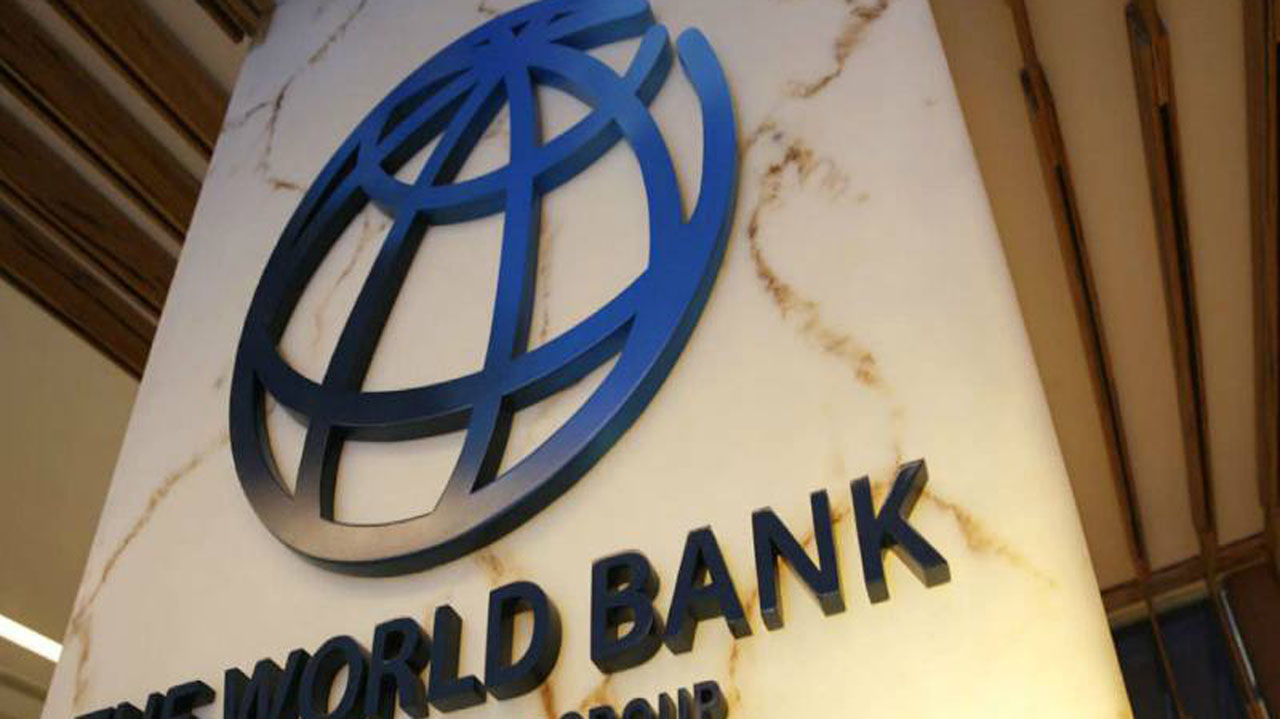
By Glory Jun, 21, 2022 Finance
According to the World Bank, the Central
Bank of Nigeria's numerous currency rates, restrictions on trade, and public
deficit financing continue to harm the business environment.
The World Bank stated that the CBN's
continued interference will result in deficiencies in economic growth, foreign
investment, human capital, investments in infrastructure, and governance.
This was released in a document titled
‘Nigeria Development Update (June 2022): The Continuing Urgency of Business
Unusual‘.

According to the World Bank, despite
increased risks, the government has maintained a "business-as-usual"
policy attitude that impedes growth in the economy.
“Multiple exchange rates, trade
restrictions, and financing of the public deficit by the Central Bank of
Nigeria (CBN) continue to undermine the business environment. These policies
augment long-standing weaknesses in revenue mobilization, foreign investment,
human capital development, infrastructure investment, and governance,” the World Bank said.
Nigeria also
missed an opportunity to eliminate subsidies at a crucial time, according to
the report. Specifically, during the years 2020 and 2021, when oil and gas
prices were relatively low, the government missed the opportunity to
resolve one of the main sources of economic and financial vulnerability by
opting to keep the premium motor spirit, or gasoline, subsidy, which is
"unique, opaque, costly, unsustainable, harmful, and unfair."
The World Bank
said more than one million Nigerians have become poor due to the
Ukraine conflict — a challenging issue that is tackling macroeconomic
threats as elections promote increased spending, high inflation,
and higher "global interest rates deter private investment." This
is on top of the 6 million Nigerians who are expected to slip into poverty this
year as a result of rising costs, notably in food. According to the analysis,
inflationary pressures would be exacerbated by budgetary challenges that
Nigeria will experience this year as a result of the rising cost of fuel
subsidies at a time when oil output is declining.
Also, foreign
exchange issues, high inflation, and budgetary constraints caused by fuel
subsidies skew the advantages of a developing non-oil industry and high oil
prices.
Concerning
restrictions on trade, the CBN has prohibited 44 import commodities from
gaining access to foreign exchange. Rice, cement, margarine, fertilizer, milk
and dairy products, maize/corn, palm kernel/palm oil goods/vegetable oils, meat
and processed meat products, vegetables/processed vegetable products, and
poultry fowl are some of the commodities on the list.
Nigeria went into
its biggest recession in 40 years in 2020, but recovery rebounded in the fourth
quarter when pandemic restrictions were removed, price of oil recovered, and
the government launched plans to counteract the economic impact. As a result,
the Nigerian economy contracted less (-1.8 percent) in 2020 than had been
predicted when the epidemic began (-3.2 percent), according to the World Bank.
As part of its reaction, the government implemented a number of long-awaited
policy measures, frequently in the face of strong resistance.
In 2021, Nigeria's
GDP was predicted to rise by 1.8 percent. Despite the positive surrounding
environment, which includes rising oil prices and growth in advanced nations,
reform slippages would impede Nigeria's economic expansion and thwart progress
toward its development goals.
Tags: World Bank Central Bank of Nigeria Nigeria economy Businesses in Nigeria
Share On Facebook Twitter Linkedin Whatsapp Telegram
Categories
Latest Post
- Nigeria Taps Global Markets with $2.25B Eurobond Sale
- Boeing Shares Rise as CEO Confirms China Deliveries to Resume Next Month
- STOCK SPOTLIGHT: UNION HOMES REAL ESTATE INVESTMENT TRUST (UHREIT)
- Nvidia Q1 2025 Earnings Report Summary
- 📉 U.S. Market Summary – May 28, 2025
- CBN Launches New Financial Tools to Boost Nigeria’s Non-Interest Banking Sector! ✨
- Market Watch: Key Updates as Wall Street Awaits Nvidia and Salesforce Earnings
- U.S. Equity Markets Rally as EU Tariff Deadline Is Extended and Consumer Confidence Surges
- Things to Know Before the U.S. Stock Market Opens
- What to Expect in the Markets This Week (May 27–31)

Start investing with Acorns today! Get $5 when you use my invite link: Z24WWE
